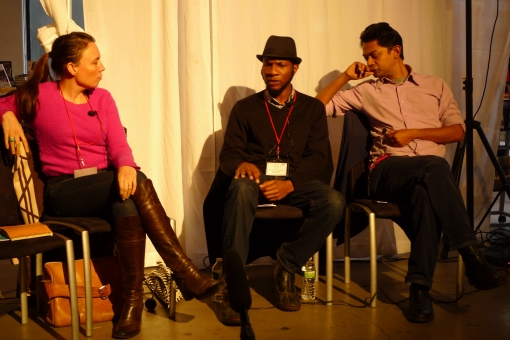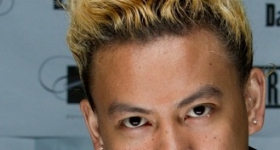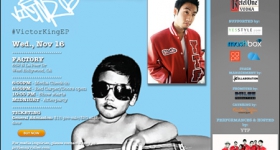This past Saturday, writers, poets, and readers gathered in
Dumbo, Brooklyn, for the day-long 3rd Annual Page Turner Asian American Literary
Festival, presented by the Asian American Writers’ Workshop (which is
celebrating its 20th year). The unseasonable sleet and freezing
temperatures couldn’t keep away a turnout of nearly 300 attendees.
Page Turner included literary sessions on the Occupy Wall
Street movement, mother-daughter dynamics, a reception with Junot Díaz and Min Jin Lee, and a celebration
of Lifetime Achievement Award recipient Jessica Hagedorn, (with a staged
reading of her newest work Toxicology).
The festival wrapped up with an afterparty DJ’ed by restaurateur Eddie Huang
(Baohaus), and playlists handpicked by the likes of hip hop group Das Racist,
writer Tao Lin, and music critic Oliver “O-Dub” Wang.
The panel I was able to catch (and no doubt one of the most
powerful) focused on immigration -- featuring the CultureStrike campaign and
its efforts to engage musicians, writers, filmmakers, and artists around the immigration
debate and, more specifically, to advocate for an Arizona boycott. CultureStrike
was formed in response to the passage of SB1070, which institutionalized racial
profiling by local law enforcement and became an emblem of the inhumane persecution
of immigrants and people of color in Arizona.
The session was moderated by Andrew Hsiao (Verso editor) and
featured Teju Cole (photographer and author of Open City), Elizabeth Mendez Berry, (music journalist and NYU educator)
and Naeem Mohaimen (artist, writer and activist).

From left to right: Elizabeth Mendez Berry, Teju Cole, and Naeem Mohaimen
Cole and Berry were a part of the inaugural CultureStrike delegation
to Arizona, where they learned from on-the-ground advocates how border
communities are affected by SB1070 and the immigration enforcement system,
which processes a deportee every 37 seconds. They also learned that at least
5,000 people have died in attempts to cross the desert since 1994, while
deportations have increased to record numbers under the Obama Administration --
an estimated 400,000 per year. A study conducted by the Mexico government found
that 60,000 unaccompanied minors were deported from the US during a 6-month
period in 2008, almost a quarter of whom entered the foster system or ended
up on the streets.
Cole presented photos he took during the delegation, stating
he wants to “connect what’s happening in Arizona to elsewhere in the world … this
is a systemic problem, not relegated to any one sector.” The most distressing
images included a comb left behind by a man who died in the desert, the local
morgue filled with rows of body bags, and a mound of crosses bearing the names
of people who perished -- one cross bearing the lipstick imprint of a grieving
sister.
Berry, who said “the undocumented are the people who
facilitate our lives,” discussed some of the factors and US policies that drive
migrants to the US, such as NAFTA’s destruction of Southern Mexico’s agricultural
economy. Current US enforcement practices are also bound up in the prison
economy, with private prisons collecting profit for each immigrant detainee,
and whose board members have been the architects of legislation like SB1070. Copycat
policies have also spread to other states like Indiana, Georgia, and most
recently Alabama. Berry feels that “through
the arts’ role of ‘imagining,’ we can make the invisible more visible, change
the frame, and provoke people who may not ordinarily care about policy.”
Naeem reflected on the harassment of South Asian, Muslim and
Arab communities post-9/11, and the need for different immigrant communities to
leverage and make connections amongst themselves about parallel experiences,
saying, “The community should not separate itself down lines of “good
migrant/bad migrant.”
Naeem also cited Fred Korematsu as being one of the first to
compare post-9/11 discrimination to that of the Japanese American WWII/internment
experience.
Overall, the CultureStrike panel made a strong case for the
power of art coupled with activism, and illustrated the importance of engaging
writers and other artists not only as cultural commentators, but as politicized
educators and advocates in the movement towards a more humane American policy
agenda. The merger of art and politics appeared to make an appealing, natural fit within the Page Turner Festival.










Comments